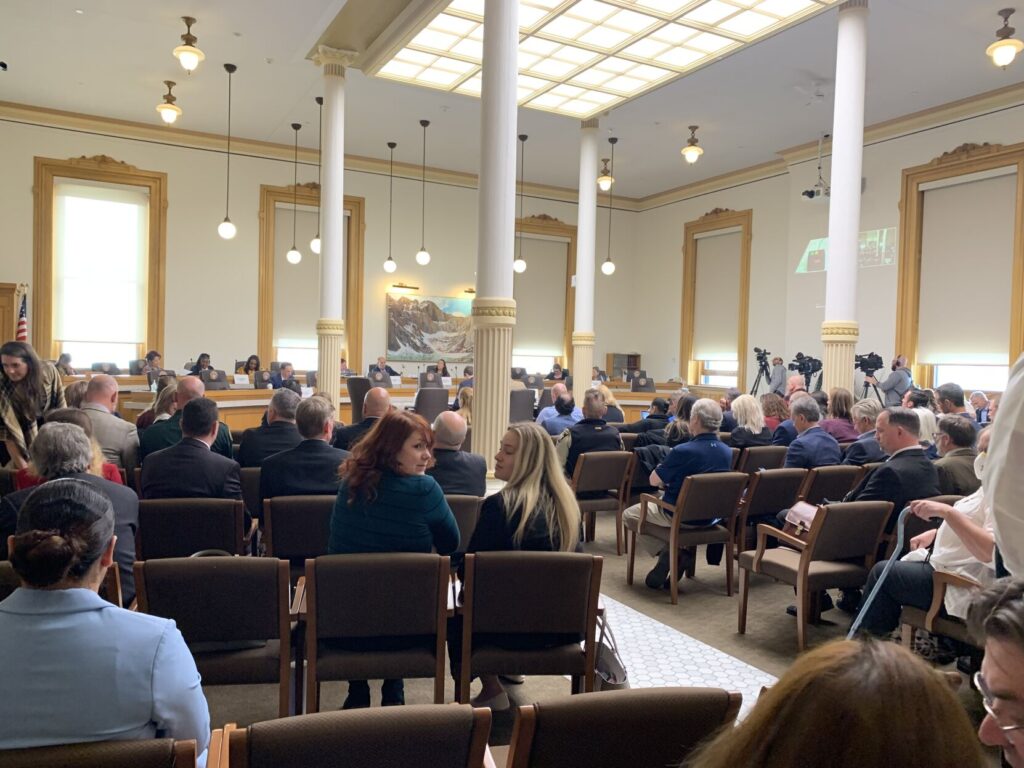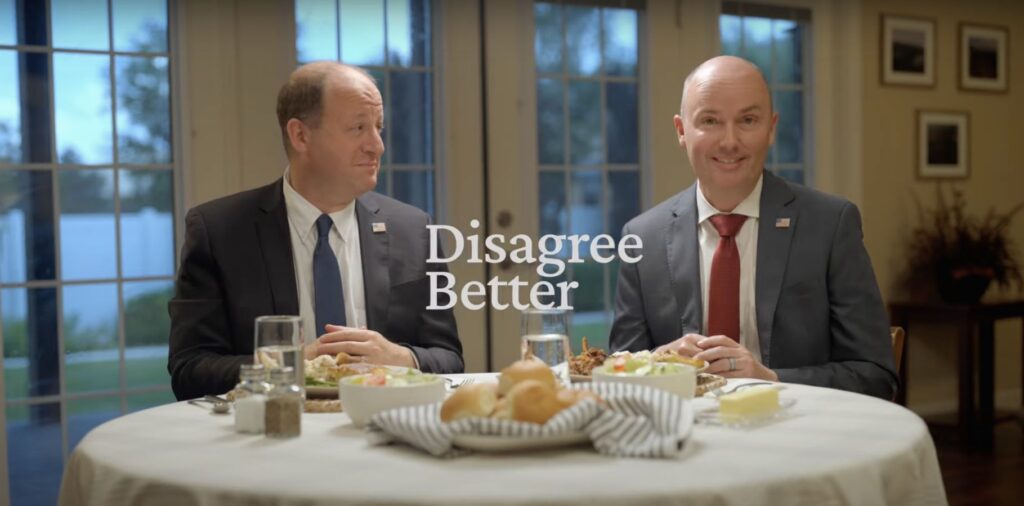Tupa still determined to boost force of public opinion at the legislature
BOULDER — Ron Tupa says his civic-engagement website, digitdemos, could change the way business is done at the Colorado Capitol. It’s a tall order, he knows, but the former state lawmaker and dedicated reformer is giving it his all this year.
“People now have the technology to solve the age-old problem with our politics. This site taps that technology,” Tupa said in a sunny cafe off Boulder Creek last Friday. Survey sheets and handouts collected over the course of years colonized a nearby windowsill and lay in heaps between coffee cups on the table. “We worked out the kinks with the site last year. We have all this functionality and it works. Now I just have to market it like you would any business.”
Digitdemos.com is a bill-tracking website that allows members of the public to sign up and take positions on proposed state laws. They can see their votes compared with their votes compare with how their elected representatives vote. Tupa said the site gives constituents a portrait of their lawmakers that they can act upon at the ballot box and it also gives lawmakers a portrait of their constituents that they can act upon at the Capitol.
The site can break out information it compiles, too. It can report how residents in individual districts and of different demographics are voting — how one Senate district feels about gun laws, say, or how women in Colorado feel about a jobs bill or a tax-cut proposal.
“It’s the people in the building — the lawmakers and lobbyists — who influence legislation at the Capitol and whip votes, but members of the public can’t get to the building all the time,” Tupa said. “They can’t be there and they just want the process to be more responsive.”
Before founding digitdemos — it’s a modern company, unemcumbered by capitalization — Tupa was a high school history teacher and then served for 14 years as a state representative and senator from Boulder. After he left office due to term limits, he became director of state legislatures for Democrats for Education Reform and is now studying for a master’s degree in political communication at Regis University.
Digitdemos draws dozens and sometimes hundreds of citizen voters. To really work, Tupa says, it would need to pull hundreds and even thousands of regular users. That kind of participation would provide a genuine snapshot of opinion in Colorado house districts, which count roughly 77,000 residents, and in senate districts, with their roughly 140,000 residents.
“If you see 65 percent or 75 percent of 1,000 people in the district taking one position and their representative voting the other way, that’s a significant disconnect,” Tupa said, adding that the site would publicize those numbers. He said that’s the kind of information that leads to primary challenges in safe seats — “tangible evidence of whether your elected officials are representing you or not,” as he put it.
Hurdles and awakenings
The main hurdle facing the site, however, remains. It’s the same hurdle that bedevils voter-registration groups, legislative newsletter writers and struggling statehouse news outlets — a mix of time constraints, aversion to complex bureaucracy and simple distraction on the part of the public.
Last year lawmakers at the General Assembly considered 674 bills. Following those bills through the legislative process — tracking them and comparing positions taken by lawmakers as they inch through committee meetings and floor votes and filibusters — is a tough sell for members of the public busy with their lives, and it’s not getting any easier amid a glut of distractions, which compete with social-media and everything begging for attention.
Tupa is unfazed. He is confident people will sign up and use the site, largely because he thinks it matters.
“My awakening on this came in 2006,” he said. “Joan Fitz-Gerald was president of the Senate and Andrew Romanoff was speaker of the House. Both Democrats. Bill Owens, a Republican, was governor. The Democrats carried an immigration-reform bill — most Democratic voters hated that bill, but we carried it because the party believed immigration was going to be a hot-button issue that was going to make or break election races — the governor’s race, swing districts, everything up and down the ticket.
“Pollsters, people in Washington, they were all saying ‘We have to moderate on this issue.’ I thought my party was wrong. But word came down, as it does. ‘This is our bill. We have to support it.’”
Tupa said he was pained and he knew what was at stake but that he couldn’t support the legislation.
“I said ‘Look, my district in Boulder will hate this bill, the quote-unquote ‘toughest immigration bill in the country.’ I talked to the city, the county. I talked to everybody. I knew none of my people in Boulder were going to like this bill. I could have said that publicly if it were a Republican bill, but this was a Democratic bill. The Democrats cut a deal with the Republican governor. It was important to them.
“Still, I said, ‘I don’t care. My people are going to hate it.’ I let Joan Fitz-Gerald know early on that I was not on board. I asked elected officials in the city and county, ‘Why aren’t you telling anybody you oppose this bill?’ They said, ‘We’re not going up against Fitz-Gerald and Romanoff.’
“That’s when reality smacked me in the face, and I could see that this system works for the parties, the interest groups, others, but less so for the people, not for the public that I represented.”
Tupa paid a price for his opposition to the immigration bill.
“I derailed the bill… and I lost my committee chairmanship over it. I was State Affairs chairman. They took it away from me — even though I was right… even though my vote reflected what my people wanted. It was the right way to vote.
“This is why people are so angry with politics,” he said. “It’s not that they don’t want to weigh in on the issues. It’s that they think it doesn’t matter if they do.”
Tupa said having evidence of your constituents’ views would provide valuable cover in cases like that. A lawmaker could, in effect, wave the citizen opinion statistics in the air and say, “As a delegate for my people, I’m voting with them.”
Shortcuts and details
Sympathetic detractors of the project say they understand the impulse behind digitdemos, but they’re less sure about how it works in practice. What’s to stop Tupa from cooking his results?
Tupa says he takes no money from special interests and that the data — the product he has to sell — would be fatally compromised if it weren’t accurate.
Sen. Pat Steadman, a veteran Democratic lawmaker from Denver, has a different complaint.
He said he first talked to Tupa about digitdemos in 2014 and was unimpressed. Steadman said he thought the bare-bones summaries of the bills offered by the site were stripped of the kind of context that matters when crucial finer points are negotiated. As a longtime member of the Joint Budget Committee, Steadman works throughout the session with his colleagues to hammer out tough legislative deals on sometimes arcane topics, often wrestling with what officials refer to as the state’s “fiscal thicket” of competing constitutional tax-and-spending requirements. As he portrays it, the budget committee work is some mix of accounting and poker, half-played onstage and half-played backstage.
“I just think [digitdemos] oversimplifies what can be very complicated — oversimplifies to the point of distortion,” Steadman said. “You’re left without nuance and detail, so the positions taken by the people and recorded by the site don’t really help me in my world at the Legislature — a world in which nuance and detail is everything.”
If Steadman sees digitdemos as a kind of shortcut to political participation when there is no real shortcut to political participation, Tupa says the time is now to battle against more disillusionment and withdrawal on the part of the public.
“People have a lot of power if they exercise that power,” said Tupa. “If they weigh in, then they will change the outcome of the votes, and change their belief in the system.
“People care less about whether they are on the winning side than they care about whether their voices are heard.”











